Caroline Arbour, Ph.D.
Assistant Professor, Faculty of Nursing, University of Montreal
Regular researcher, CIUSSS-NIM Research Center
caroline.arbour@umontreal.ca
Training
Postdoctoral fellowship on multimodal assessment of disorders of consciousness (University of Liège)
Postdoctoral fellowship in sleep and wakefulness disorders after head trauma (University of Montreal)
Ph.D. in Nursing (McGill University)
Research interests
The short and long term effects of head trauma on pain experience, sleep patterns, and other indicators of quality of life. The development and validation of innovative interventions (cannabis, hypnosis, TMS) to prevent and mitigate these side effects in the context of head trauma and other complex health conditions.
Methodological approaches
Behavioral evaluation, actimetry, quantitative sensory evaluation, polysomnography, biomarkers, non-pharmacological interventions (cannabis, hypnosis, TMS).
Fundings
Canadian Institutes of Health Research Foundation Team Grant
Amount: $ 1,500,000
Role: Principal Investigator (Nominated Principal Investigator: Louis De Beaumont)
Title: A Prospective Translational Model of the Effects of Cannabis on Opioid Use and Overall Patient Recovery in the First Year of Trauma
Years: 2020-2025
FRQ-S Consortium for the Development of Trauma Research
Amount: $ 150,000
Role: Principal investigator
Title: Identify patients at risk of chronic pain after moderate / severe traumatic brain injury from the first days of intensive care hospitalization
Years: 2018-2021
Blanchard Family Chair for Teaching and Research in Palliative Care
Amount: $ 40,000
Role: Principal investigator
Title: Conversational hypnosis to improve emotional support and physical comfort during outpatient palliative chemotherapy treatments
Years: 2019-2021
My team

Alexandra Lapierre, inf
Ph.D. candidate

Danny Hjeij, inf
M.Sc. candidate

Chloé Martineau-Lessard
M.Sc. candidate

Sabrina Bouferguene M.Sc.
Research Assistant

Naïcha-Éveline Germélus B.Sc.
Research Assistant
Selected publications
Arbour C, Martineau-Lessard C, Germélus N-É, Williamson D, De Beaumont L, Bernard F. Pupil light reflex for the assessment of analgesia in critically ill sedated patients with traumatic brain injury: a preliminary study. Soumis.
El-Khatib H, Sanchez E, Arbour C, Van Der Maren S, Duclos C, Blais H, Carrier J, Simonelli G, Hendryckx C, Paquet P, Gosselin N. Slow wave activity moderates the association between new learning and traumatic brain injury severity. Sleep. 2020. doi: 10.1093/sleep/zsaa242
Herrero Babiloni A, Exposto FG, Bouferguene Y, Costa Y, Lavigne GJ, Arbour C. Temporomandibular disorders in traumatic brain injury patients: a chronic pain condition requiring further attention. Pain Medicine. 2020; 21(12):3260-3262. doi: 10.1093/pm/pnaa234
Sanchez E, Arbour C, El-Khatib H, Marcotte K, Blais H, Baril AA, Bedetti C, Descoteaux M, Lina JM, Gilbert D, Carrier J, Gosselin N. Sleep Spindles Are Resilient To Extensive White Matter Deterioration. Brain Communications, Brain Communications. 2020;2(2):fcaa071. doi: 10.1093/braincomms/fcaa071
Bouferguene S, Lapierre A, Rainville P, Arbour C. The effect of age and pain on quantitative sensory testing measurements after moderate-to-severe traumatic brain injury: preliminary findings. Biological Research for Nursing. 2020;22(3):341-353. doi: 10.1177/1099800420912462
Bouferguene S, Lapierre A, Houzé B, Rainville P, Arbour C. Chronic central pain among community-dwelling survivors of moderate-to-severe traumatic brain injury: a quantitative sensory testing study. Biological Research for Nursing, 2019;21(5):519-531. doi: 10.1177/1099800419859078
El-Khatib H, Arbour C, Sanchez E, Dumont M, Duclos C, Blais H, Carrier J, Paquet J, Gosselin N. Towards a better understanding of increased sleep duration in the chronic phase of moderate to severe traumatic brain injury: an actigraphiy study. Sleep Medicine. 2019;59:67-75. doi: 10.1016/j.sleep.2018.11.012
Suzuki Y, Arbour C, Khoury S, Giguère JF, Denis R, De Beaumont L, Lavigne GJ. Does sleep bruxism contribute to headache-related disability after mild traumatic brain injury? A case-control study. Journal of Oral & Facial Pain and Headache. 2017;31 :306-312. doi: 10.11607/ofph.1878
Houzé B, El-Khatib H, Arbour C. Efficacy, tolerability, and safety of non-pharmacological therapies for chronic pain: an umbrella review on various CAM approaches. Progress in Neuro-Psychopharmacology & Biological Psychiatry. 2017;79:192-205. doi: 10.1016/j.pnpbp.2017.06.035
Suzuki Y, Khoury S, El-Khatib H, Chauny JM, Paquet J, Giguère JF, Denis R, Gosselin N, Lavigne GJ, Arbour C. Individuals with pain need more sleep in the early stage of mild traumatic brain injury. Sleep Medicine. 2017;33 :36-42. doi: 10.1016/j.sleep.2016.06.033
Projects
Impact of cannabis on opioid use and overall recovery from head trauma
Analgesia is a priority in trauma care because unrelieved pain can interfere with short- and long-term post-traumatic recovery. Despite the high risk of abuse and dependence, people with head trauma are frequently prescribed opioids while in or out of hospital. The current opioid crisis coupled with the legalization of cannabis in Canada calls for a cross-sectoral strategy to investigate the potential of medical cannabis on opioid use and overall recovery from head trauma. The main objective of this cohort study is to provide the first evidence on the effectiveness of medical cannabis in reducing opioid consumption, both at home (mild trauma) and in hospital (moderate / severe trauma), and moreover accelerate the healing of the head trauma according to recognized indices of recovery such as the intensity of the pain, the quality of sleep and other measures of quality of life. Using ecologically valid animal models, another goal of this study is to better understand the influence of sex and pre-traumatic recreational cannabis use on the response to medical cannabis after head trauma.
Pain following moderate / severe head trauma
Chronic pain is frequently reported 6-12 months after moderate / severe head trauma and is a major cause of impairment to quality of life. However, not all trauma patients will develop chronic pain. However, previous retrospective studies have not been able to establish the clinical profile of those most likely to develop persistent and debilitating pain after this form of injury. This prospective study aims to identify, from the first days of hospitalization, individuals at risk of developing persistent pain after moderate / severe head trauma. To do this, variables pertaining to inflammation, pain relief and severity of head trauma will be documented. The ability of these variables to predict chronic pain between 6-12 months of head trauma will be assessed. Our study will allow us to better understand the clinical and socio-demographic profile of people who develop persistent pain after moderate / severe head trauma and to develop an early intervention protocol.
Hypnosis to reduce pain and fatigue in outpatient chemotherapy
Pain and fatigue, although often reported during chemotherapy treatments, are difficult for the oncology nurse to treat. In recent years, conversational hypnosis has emerged as a promising approach to promote pain relief and increase endurance to invasive treatment in outpatient settings. This pilot study serves as a proof of concept and aims to explore whether conversational hypnosis can be used by trained nurses to optimize pain and fatigue management during outpatient chemotherapy treatments. To do this, patients enrolled in a cycle of chemotherapy treatment will be recruited during a visit to the outpatient clinic. Half of the patients will be assigned to routine care plus a hypnosis session and the other half will receive routine care. In addition to contributing positively to the feeling of self-efficacy and the work performance of nurses working in the hematology-oncology clinic at CIUSSS-NIM, we anticipate that exposure to hypnosis will have a calming effect on patients. chemotherapy providers at this center, allowing medical procedures to progress in a more efficient, safer and more comfortable manner.
